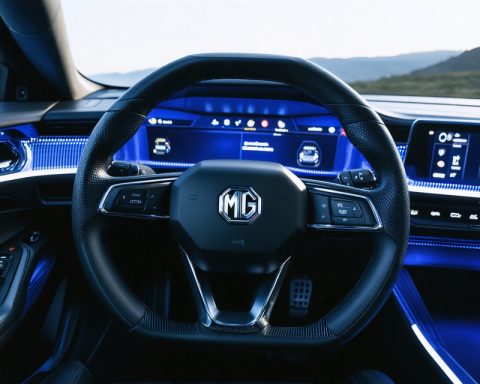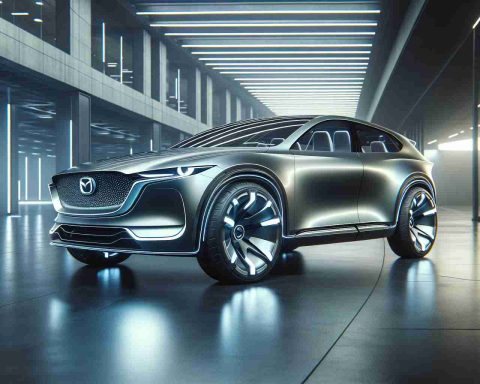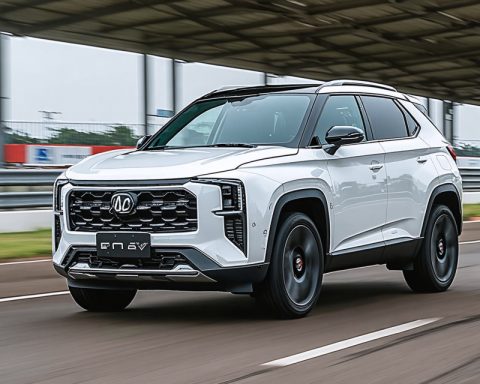- Porsche is pioneering battery recycling to transform used EV batteries into essential raw materials, reshaping the electric vehicle landscape.
- A multi-phase pilot project aims to efficiently recover nickel, cobalt, manganese, and lithium from “black mass” derived from exhausted batteries.
- This initiative not only reduces carbon footprints but also ensures future access to critical resources amidst global uncertainties.
- Porsche’s strategy goes beyond compliance with upcoming EU regulations, instead setting a precedent in establishing a closed-loop manufacturing system.
- Commitment to a circular economy highlights Porsche’s leading role in sustainable automotive innovation, integrating recycled materials into new battery production.
Amid the electrifying race for sustainable innovation, Porsche sets the pace with a daring leap into battery recycling, reimagining the fate of high-voltage EV batteries. The German automaker unveils a multi-phase pilot project that transforms exhausted battery cells into a treasure trove of essential raw materials—a feat that might just change the landscape of electric vehicles as we know it.
Visualize once-roaring engines, now silent, entering a different journey through precision shredding in order to create “black mass.” This dense, black powder, born from tons of spent batteries, is the starting line for a complete transformation. Porsche’s innovative process promises to extract the essence from this black mass—nickel, cobalt, manganese, and lithium—with breathtaking purity and potential.
Porsche’s ambitions stretch beyond mere recovery. Each granule of reclaimed material is a building block for future EV battery performance, enabling the manufacturing of new battery cells that sustain Porsche’s legendary standards. Their vision is simple yet profound: to embed a defined share of these recycled elements into manufacturing, thereby creating a seamless cycle where old meets new.
The significance of this venture resonates across environmental and economic spheres. By nurturing a circular supply model, Porsche is not just reducing its carbon footprint but also safeguarding future access to dwindling resources. With global markets trembling from geopolitical uncertainties, securing these materials ensures Porsche’s adaptability and resilience against future disruptions.
Porsche isn’t just reacting to impending EU regulations anticipated by 2031, which will enforce stricter standards on battery content and traceability. Instead, it’s spearheading the shift toward a closed-loop system that the industry must soon embrace. This proactive strategy cements Porsche’s role at the forefront of sustainable manufacturing, setting a new benchmark for responsibility and innovation in the automotive world.
The journey from wasteland to resource-rich future is not just a tale of mechanical wizardry but a testament to a broader commitment—a circular economy that promises not only environmental preservation but a polished future driven by ingenuity and foresight. Porsche’s endeavor exemplifies a shift where sustainability is not just an option but an integral part of the road ahead.
Porsche’s Game-Changing Battery Recycling Initiative: What It Means for the Future of EVs
Exploring Porsche’s Innovative Battery Recycling Process
Porsche’s pilot project in battery recycling is a bold step toward sustainable innovation in the automotive industry. By repurposing high-voltage EV batteries, Porsche aims to reclaim crucial materials like nickel, cobalt, manganese, and lithium. This transformation not only promises to enhance future battery performance but also underscores a broader commitment to environmental responsibility.
How Porsche’s Battery Recycling Works
1. Collection and Shredding: Spent batteries are collected and shredded mechanically to produce a material known as “black mass.”
2. Material Recovery: This black mass undergoes a series of chemical processes to extract high-purity nickel, cobalt, manganese, and lithium.
3. Material Reuse: The recovered materials are then used to manufacture new battery cells, integrating a certain percentage back into production.
The Broader Impact of Porsche’s Initiative
Environmental and Economic Benefits
– Circular Economy: By fostering a circular supply model, Porsche reduces waste and lowers its carbon footprint. This approach also mitigates resource scarcity, providing a reliable supply of essential battery materials.
– Strategic Autonomy: Ensuring a stable supply of critical materials helps buffer Porsche against geopolitical uncertainties and potential supply chain disruptions, allowing for uninterrupted production continuity.
Real-World Use Cases and Industry Impact
– Global Standards Compliance: With EU regulations tightening by 2031, Porsche’s initiative positions it ahead of compliance mandates, integrating traceable and sustainable practices within its operations.
– Influence on the Automotive Industry: This move sets a precedent for other automakers as the industry shifts toward more sustainable practices, promoting a closed-loop system of production and material reuse.
Comparing Porsche’s Initiative
While other automakers are exploring battery recycling, Porsche’s approach distinguishes itself through its focus on creating highly pure materials suitable for new battery production. This high standard ensures that recycled materials do not compromise the performance or longevity of future batteries.
Limitations and Challenges
– Technological Execution: Implementing this high-tech recycling process at scale remains a challenge, requiring significant investment in technology and infrastructure.
– Market Penetration: Successfully integrating recycled materials into new battery productions demands market acceptance, which may hinge on consumer perceptions of recycled components.
Future Insights and Predictions
– As technology advances, expect significant improvements in the efficiency and cost-effectiveness of battery recycling processes, potentially lowering EV prices and boosting market adoption.
Actionable Recommendations
– For Consumers: Consider the long-term environmental impact of your vehicle choices. Opting for brands like Porsche, which invest in sustainable practices, contributes to a healthier planet.
– For Industry Stakeholders: Emphasize research and development in recycling technologies to further enhance the sustainability of electric vehicles.
– For Policymakers: Support regulations and incentives that encourage automakers to adopt sustainable manufacturing practices.
For more insights on sustainable innovation and automotive industry trends, visit the official Porsche website: Porsche.
Porsche’s proactive approach to battery recycling is not just an exemplar of sustainable manufacturing but also a critical step toward a more resilient and environmentally friendly automotive industry.






















